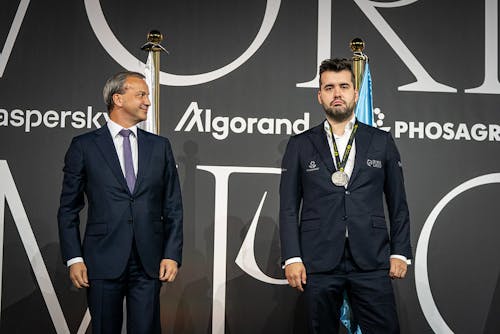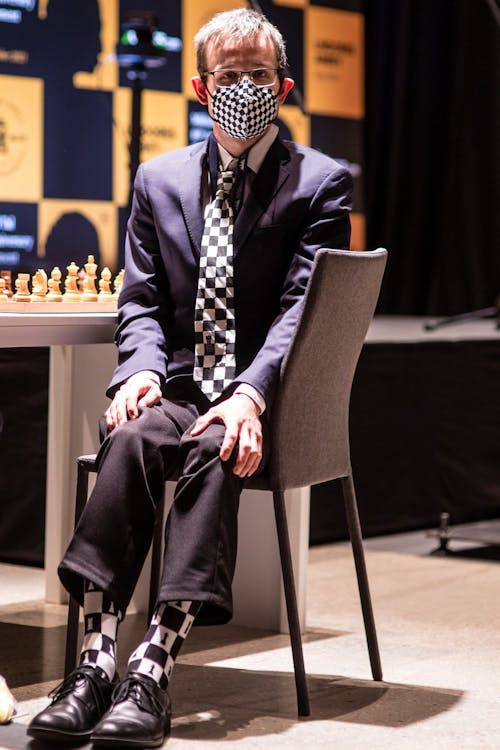Are you sure you want to delete your account?
(This will permanently delete all of your data - purchases, game scores, ratings, etc)
Change your username
Your current username is: guest
Change your account email address
Your current account email is:
Redeem your Fampay code here!
Use your Fampay code to get access to the Play Magnus Plus Membership!
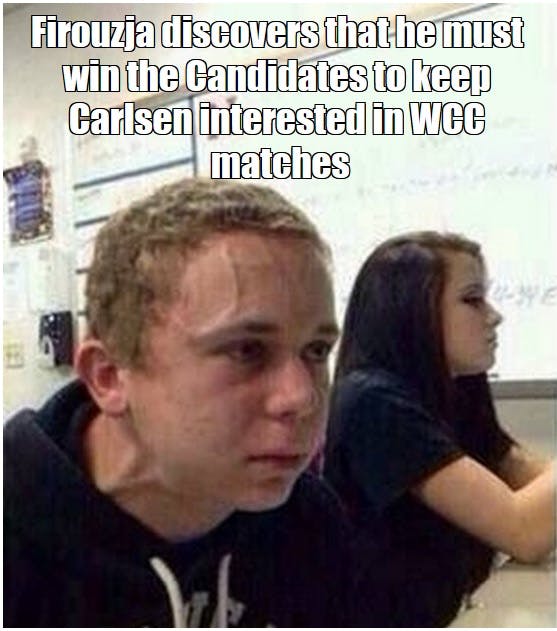
Is Reading the Biographies of Top Players a Waste of Time?
Many of us enjoy reading books or listening to lectures & motivational speeches given by eminent individuals who have attained international recognition in their fields of expertise. This process of fishing for the right "secrets of success" is an inherent part of human nature. Chess players are no exception to this rule.
My soft spot in this regard is not unique: I like to pay special attention to interesting anecdotes and facts from the life of the top chess players and subconsciously make comparisons between myself and them. This might not be a bad idea if you want to become a chess journalist or occasionally win a trivia by answering correctly who came first in Zurich 1953 and other tricky chess questions. However, I have met a few chess experts who played chess very poorly, while many modern GMs sometimes amaze me with their illiteracy in chess history. Playing and studying the games is usually more productive for someone who wants to improve than reading amusing stories about how one master called a fellow guy a moron.
Notably, GM Simen Agdestein mentions in his book "Wonderboy Magnus Carlsen" that as a kid, Magnus was much more interested in the games of the world champions than in the opportunity to have a conversation with them. Maybe it was due to his age at that time and to his introverted personality, yet it is still another sign that paying more attention to the players' games is a good idea if you are concerned about improving your chess.
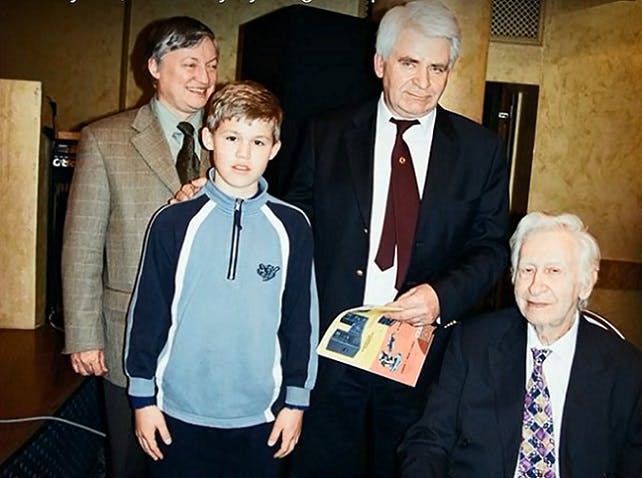
Moreover, one must keep in mind that all of us are unique. The circumstances are different, and it takes quite some effort to determine which rules of thumb from the past to follow and which to disregard. For instance, let's consider Ian Nepomniachtchi's recent interview and see what he has to say about losing the World Chess Championship match to Magnus Carlsen in a rather dramatic fashion (7.5-3.5).
Mike: Yeah, we've already asked about that at the post-game press conference, the actual chess. Getting back to your team, you obviously had [GM] Sergey Karjakin on your team; please correct me if I'm wrong if you had [GM] Peter Leko on your team, but both of those players have played for world championships, and I'm sure they tried to describe to you what it was going to be like to be in the tank. Not chess moves, but just that experience. Was there preparation for what it was like to play in the tank? Was it what you expected, or was it somehow different?
Ian: Well, I would say that Sergey joined somewhat last minute, so basically for the last month and it was mainly about some training, which probably, as it seems right now, were too intense and maybe not too well-timed because normally you'd probably have some break so you can play some blitz or bullet online. But if you try to play some serious or semi-serious games, not like blitz, just for training purposes, there's also a limit. You shouldn't be swallowed into this whole topic.
Indeed, it was quite instructive to speak with Peter and speak with Sergey about their world championship match experiences, but I understood after the match had started, that every match is unique. You can even imagine yourself in someone's shoes but at the same time the opponent can be different, and even if it's the same person, that person can play completely different chess with a completely different attitude.
Some general advice is not to pay too much attention to what people say, don't get too busy with some social media, and so on, but these are just general words. I asked a few questions, I asked [GM] Vladimir Kramnik [for] his thoughts. Sadly, we couldn't work together this time, but maybe sometime in the future. Of course, a lot of guys gave me a lot of advice, some of them had world championship match experience, some of them not. Perhaps today I would say that maybe it was a little bit too much, you know, trying to do your thing correctly according to all of this information you get because once again, every tournament is more or less unique and especially every match is unique and you have to prepare for your own situation. It was a bit of an unfortunate decision to try to build your preparation onto the experience of other people...
As you can see, Ian did his homework by talking to some people who have had experience playing World Chess Championship matches, hoping to discover some secrets that would help him perform better against Carlsen. However, according to Nepo, the decision to follow into the footsteps of others was not particularly beneficial for him. The "every match is unique" reminds me of a recent monologue by Vladimir Kramnik that he gave on the Levitov Chess YouTube channel. He lamented that, despite being experienced already, everything that could go wrong went wrong for him during the match against Anand in 2008, while in his very first match against Garry Kasparov in 2000 everything proceeded smoothly. In other words, if our own experience sometimes doesn't prove to be useful, then how can we expect someone else's experience to carry us through?
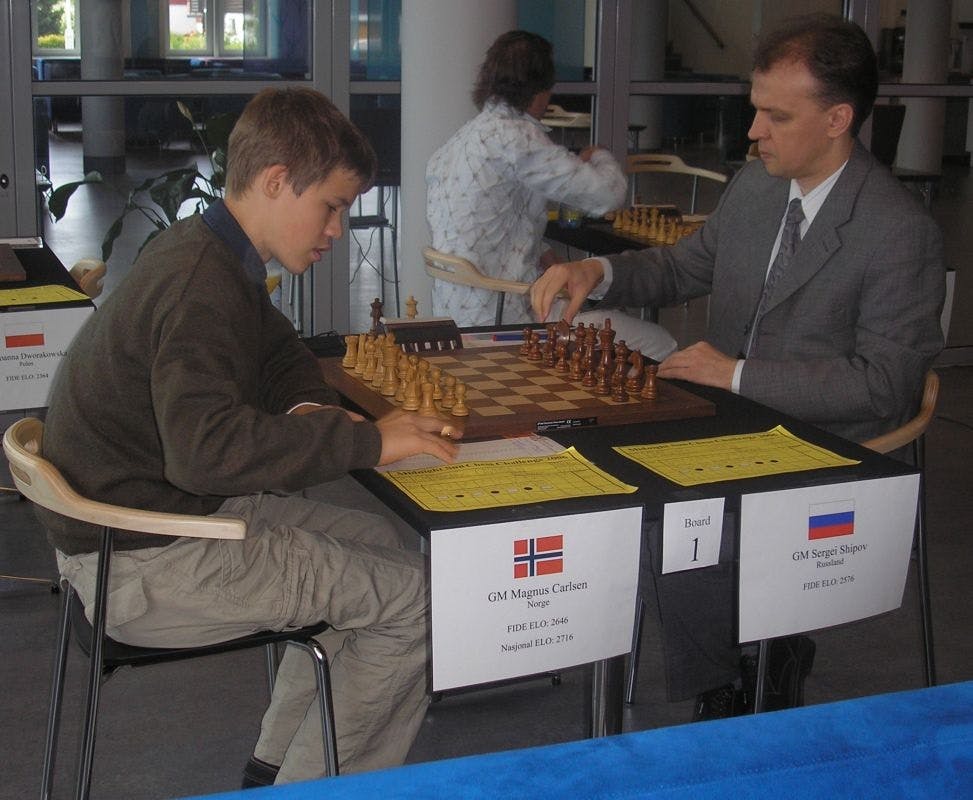
The one and only official chess game between Magnus Carlsen and Sergey Shipov took place in 2006.
For objectivity's sake, I don't want to create an impression that you should totally disregard the collective chess wisdom. For comparison, here is what GM Sergey Shipov, a well-known chess commentator and ex-coach of Ian Nepomniachtchi & Carlsen's second Daniil Dubov, posted in the Crestbook VK group:
Yesterday during the press conference, Ian pointed out that he might have over-trained before the match when commenting on the possible reasons for his loss.
Well, it happens. Grandpa [Mikhail] Botvinnik was not wrong on everything 😊
For instance, he recommended not to touch the chessboard for two weeks before an important tournament to which you are preparing in advance. Sleep, food, walks, physical workouts, and as little chess as possible! As a result, you preserve your passion for chess and are able to play with pleasure and at full force. Also, this way, it is easier to maintain focus and not blunder like Ian did.
I believe that in our days the two weeks distance is excessive. One may as well shorten the chess "quarantine" to one week. And to throw some simple chess tactics into the mix – both for entertainment and for feeling better.
Magnus seems to follow this routine, adding light-spirited blitz matches against relatively weak opponents to it. Sometimes he whitewashes an opponent and sleeps well afterward! 😉 Well, for all the future rivals of the World Chess Champion, the failure of the Challenger is going to become an instructive case study. Maybe for Ian himself as well…
Here we can see Shipov fall back on a classical tip dating back to the days of the hegemony of Soviet chess and adapt it slightly to meet the challenges of the modern age.
Frankly speaking, I was shocked when I heard how many training games Nepo and Karjakin have played right before the match. Even before I discovered that, I looked at Nepo during the opening ceremony and told my friends that he conveys an impression of an exhausted person who has already played a match or two. My prediction was that his relatively poor physical form would haunt him in the second half of the match, as it often happens to Nepo, and will result in a loss in 14 games or sooner.
It turns out I was spot on; Nepo did conduct two rigorous sparring matches against Karjakin and eventually lost the match against Carlsen. Admittedly, having said what I said earlier, I didn't expect it to go THAT badly for him! As an outsider, one can only wonder why a Challenger would commit
"every Russian schoolboy knows" mistakes and later comment on them as if he has learned something new for himself. Still, it is probably not that straightforward if Ian and his experienced team of GM coaches chose the path that they did.
Summarizing, for mere mortals resorting to analogies and walking in the footsteps of others is a useful strategy. Still, it must be applied with caution and tweaked depending on the circumstances. When talking about breakthrough moments, you often have to be an innovator to excel; simply following well-known recipes won't cut it. I guess this is one of the explanations why Ian failed: he tried to take on the role of a trendsetter but collapsed under the superhuman pressure of the match in general and Magnus "the alien" Carlsen in particular.
Wondering how tough it was for Nepo to face Magnus over the board? Download Play Magnus and get a feel of how unforgiving the reigning World Chess Champion is!
